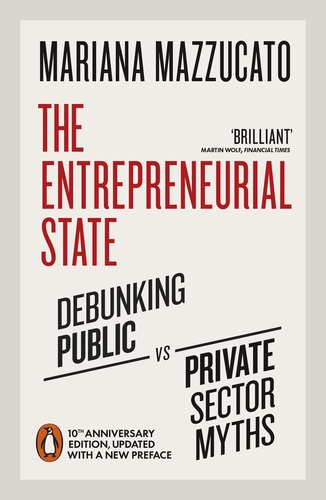
You’ve probably heard it in every startup pitch deck since the dawn of Lean: “We’re hiring a killer PM to build the roadmap.” Or worse, “Our Head of Product will drive user adoption and retention.” Bless their hearts. That mindset is the startup equivalent of rearranging deck chairs on the Titanic, blind to the reality that your greatest threat isn’t whether passengers like the product. It’s iceberg, right ahead.
In 2025, the most underestimated, under-hired, and yet most desperately needed role in early-stage ventures isn’t your Product Manager. It’s Public Affairs. And if my saying that makes you think, “what??” Bear with me, because I’m not here to make a statement of fact; I want to present to you a theory. We’ve all been doing it wrong.
Article Highlights
- Startups Aren’t Products, They’re Political Acts
- Product-Market Fit Is a Political Process
- Public Affairs Is Risk Management in an Age of Weaponized Narratives
- How State Policy Can Make or Break a Startup
- The Product Manager Is the COO of a Fictional Future
- Case Study: Why Fintech, ClimateTech, and AI Can’t Rely on Product
- The Future of Startup Teams? Or perhaps already, the Startup Team that Wins
Startups Aren’t Products, They’re Political Acts
First, a bold truth: Startups are not products. They are economic and cultural disruptions. As I pointed out in “What Startups Can Learn from Utility Regulation”, most of what we idolize as “innovation” today is simply a better way to navigate, or circumvent, existing systems. You’re not building software. You’re renegotiating power. You’re not releasing features. You’re declaring independence.
Be clear in appreciating this, or stop reading now, if you don’t agree with me in that, you’re going to fail.
The Five Prisms, from Northwestern’s work which I explored in that Utility Regulation article — market structure, customer protection, externalities, technology adoption, and scale, aren’t just academic lenses. They’re a checklist of what every early-stage startup is up against. Regulation, reputation, policy, social license, and public opinion, all of it hits early. And the idea that your “Head of Product” will “iterate through it” with a few user stories? Laughable.
As Bill Gurley of Benchmark observes, the average startup underestimates the power of regulatory risk. And overestimates how much the product alone can carry them.
“In my first two decades inside the Silicon Valley bubble we built products people wanted and needed. We competed with other technology companies, and, like Bill Gurley, largely ignored whatever was going on in Washington. We were content Washington didn’t know we existed. Unless you were in life sciences (therapeutics, medical devices, or diagnostics), very little government regulation applied. We ignored Washington and Washington mostly ignored us (defense contractors excepted.)” Steve Blank, “The tech ecosystem got a rude awakening in May 1998 when the U.S. Justice Department and 20 state Attorneys General brought suit again Microsoft for anticompetitive practices designed to maintain its monopoly in PC operating systems and internet browsers.”
Translation: you can’t MVP your way past public scrutiny.
Product-Market Fit Is a Political Process
You think you’re looking for product-market fit. What you’re actually hunting is permission — from regulators, influencers, journalists, customers, and communities.
Product-market fit is political. Just ask Uber, Airbnb, or any fintech that tried to “disrupt” insurance. They didn’t win because of A/B testing. They won because they fought policy battles, built alliances, and changed hearts and minds.
This is where Public Affairs comes in. Not PR. Not (what most of you mistakenly think is) marketing. Not some intern tweeting GIFs from the company handle. Public Affairs means meeting and working with legislators, stakeholder mapping, narrative control, media pressure, coalition building, and policy intelligence.
It means managing the interface between your company and society, not just your codebase and users.
Startups need someone who thinks like an ambassador, not a product owner.
Public Affairs Is Risk Management in an Age of Weaponized Narratives
In today’s climate, where media hits harder than malware and ESG funds are now deciding market viability, your biggest existential threat is not bugs or churn—it’s narrative. Get profiled by a hostile journalist? Lose a state-level contract because you missed a regulatory nuance? Get caught in a political crossfire like TikTok? Game over.
Product Managers are trained to manage scope. Public Affairs professionals are trained to manage risk. And startup risk has gone geopolitical.
As McKinsey frequently steers, Geopolitical risks are no longer episodic; they are now structural… firms must build capabilities to anticipate and influence outcomes.
Read that again: influence outcomes. That’s not a Jira ticket. That’s public affairs working with journalists, competitors, conferences, and the government, to put your innovation in the market.
How State Policy Can Make or Break a Startup
Investors asking about your roadmap aren’t actually asking about your roadmap. That’s one of those questions or expectations that comes up in fact BECAUSE something else is amiss (which is usually why VCs have questions illuminating concern). Most likely, they’re asking about your roadmap because you clearly don’t have a moat. And in a market where AI, Web3, and biotech are clashing with public trust and policy, your moat isn’t your tech. It’s your stakeholder alignment.
This is why Public Affairs professionals are so effective: they understand that scale doesn’t just come from demand. It comes from legitimacy. They align you with state, local, and federal interests. They help you frame your value to industry groups, labor coalitions, civic boards, and the media. They speak system, not just solution.
As political economist Mariana Mazzucato wrote in The Entrepreneurial State, private sector innovation doesn’t happen in a vacuum. It’s embedded in a network of public actors, funding mechanisms, and policy environments.
Stop pretending you’re operating in a free market. You’re not. You’re navigating a permission economy.
The Product Manager Is the COO of a Fictional Future
No disrespect to PMs — I’ve worked with great ones. But in a pre-Series A startup, the role is often miscast. You don’t need someone to spec features when you barely know what market you’re in. You need someone who can get the mayor’s office to return your call, who can speak at a chamber of commerce without sounding like a startup bro, and who knows how to get a piece of state grant legislation written into law.
The Rise of Startup Public Affairs
You need someone who can tell your story in The Atlantic before the opposition does in The Intercept.
Benedict Evans has alluded that most of the time, what looks like technology disruption is actually regulatory arbitrage.
And guess who arbitrages regulation?
Case Study: Why Fintech, ClimateTech, and AI Can’t Rely on Product
Need proof? Let’s talk sectors. In fintech, startups like Plaid and Chime grew not just by building better banking interfaces, but by navigating federal regulation like Dodd-Frank and the CFPB. In ClimateTech, breakthroughs are constrained by permitting, tax incentives, and carbon credits, policy bottlenecks, not product problems. In AI? Let’s just say, if your startup isn’t already lobbying DC, you’re already losing to OpenAI and Palantir.
A Product Manager might figure out how to make the onboarding faster. Public Affairs means figuring out how to get a senator to put your pilot into the next infrastructure bill. Which one has more leverage?
“Systemic change at that scale requires both technological and institutional change. Institutions will be the hard part, not technology.” Lynne Kiesling; Director, Institute for Regulatory Law & Economics, Northwestern University, commenting on electric grid decentralization
The Future of Startup Teams? Or perhaps already, the Startup Team that Wins
Public Affairs first isn’t a pivot, it’s a survival strategy. I’ve beat this drum from SXSW panels to podcasts, since 90% of startups fail, stop focusing on what might make you successful and instead focus on surviving so you remain in the pool that can continue iterating to success. You need someone who knows how to write a coalition letter, build a regulatory sandbox, understand FEC filings, and work with think tanks. You need someone who can get your pitch on a governor’s agenda more than a Y Combinator waitlist.
Stop hiring like you’re building an app. Start hiring like you’re building a movement. You can always find someone to write user stories. It’s a hell of a lot harder to find someone who can inform, educate, and influence.
Thought to take with you:
If your startup vanished tomorrow, would anyone notice, or would it be lost under the ocean having struck an iceberg no one saw coming?
Would anyone care but you and the team members who are hoping it’s successful? Would your community care? Would the industry care? If the answer is no, don’t blame product, don’t blame running out of cash, and don’t blame lack of customers. Blame your failure to appreciate that startups are political acts of influence and change.




This nails it. Startups don’t just need builders they need defenders. In heavily regulated sectors, public affairs isn’t a luxury, it’s survival.
Yomuma Likessa and the irony is that most founders don’t realize they’re in a regulated industry until it’s too late. It’s not just banking or biotech anymore. The moment your product impacts labor, data, housing, education, transportation… you’ve entered political terrain.
The real question is: if your startup is meant to disrupt a system (which, arguably, it is, by definition of being a startup), who on your team actually understands how that system works — and who has the credibility to influence it?
I love this. It’s another chapter in your “book” – and standup comedy routine? – “You’re not a startup unless…”
In this case, if you’re not worried about Public Affairs, then you’re not a startup. You’re a plain vanilla business. Perhaps with bucket loads of upside, but still not true startup material.
Innovation – gawd bless the overuse of that word – isn’t enough. If you’re not “offending” someone(s) then you’re not a startup. The Sex Pistols were more of a startup than you are
How do I get you to come and speak on this topic in Iowa?
Liz Keehner it’s the new me <3 Peek at my LinkedIn, I'm career changing, having found the niche where I can make a difference holistically. Just say when!
Mark Simchock the stark difference between a business and a startup might be the most important distinction of our economy
Paul O’Brien “The moment your product impacts…” someone else’s status quo goldmine you’re likely to get hit with things that have nothing to do with “product”.
I’ve been preaching this for years. Some have listened, most have not…thanks Paul for posting.
Fred Pierce took me a bit from when we first met to now, pushing that the solution to startup junk was the curriculum in the programs or the lack of focus and prioritization of Marketing (which are both still true)… To realize for myself that you were right
Great article. And particularly relevant to the overpriced, over regulated yet highly emotional health sector.
The reason most health tech products is not because patients or Doctors don’t want them, they do.
It’s because billion dollar industries like big pharma and big hospital don’t want to lose their profits, and politicians are terrified of being labled as ‘killing grandma’ on social media.
Yes!!! Perfect example. My family works in healthcare (I don’t) and when I mentor in startup incubators, I end up telling every healthtech startup that they’re going fail.
I’ve seen hundreds now. Not yet one success.
astonished by the abundance of innovative, accurate and portable tech for both patients and doctors.
I’ve heard (naïve) people enthusiastically describe today’s health tech startup scene as ‘The Cambrian explosion’. But where are all these products a few years after invention? Most are abandoned. Not because they don’t solve problems at a very affordable price. But because their existance terrifies and confuses big corporates and politicians.
Most innovation (both models of care and technology) seems to be coming from countries with far less government funded healthcare, like India and Africa. Much of the duties currently performed by nursing and medical staff in the West could easily be done by carers and senior nurses. We don’t just have a ‘bureaucracy’ problem. We also have a ‘union’ problem in healthcare.
Wouldn’t it be great if RFK Jnr and the reform Dr’s in the new administration supported ‘alternative health models’ and just let inventors create and patients and Doctors try things out for themselves? I’ve followed reform Dr’s like Marty Makary for years. He and Aseem Malhotra know exactly what the issues are.
This is a critical point. We’ve been having conversations with our clients about political risk for years. There has been a real hesitancy ecosystem-wide to embrace the idea that almost everything is political now.
Where my head is going next is that the challenge is layered, Matt. Curious what you think. That, let’s pick a sector for the sake of discussion…
Healthcare. Why not go big?
We have a medicine tracking app that is going to fail, because of pharma regulation
– But even if we get past that, they’re going to fail because of privacy regulation
— And even if we get past that, they’re going to fail because of security requirements
— AND should even that be possible, no one knows how because of education regulation that makes it difficult for educators (trade schools) to get funding or support to TEACH any of this.
You’re not wrong, everything is political, begging the question of where we start. And when I stay start, I mean, perhaps, not even DEegulation nor prioritizing policy work. Instead, are we guiding entrepreneurs in the wrong direction?? Should we be pushing them to break laws? Or might we instead be demanding more from VC; that venture capitalists need to establish an ecosystem that overcomes political risk?
I don’t know, just spit balling, but it strikes me that we’re in an era when “it doesn’t matter what politicians think or do because they’re going to be disrupted and proven wrong anyway” AND YET STILL “we have millions of entrepreneurs trying and failing because we continue to inspire them that they can… when ultimately regulations will kill them off.”
I don’t think you’re full of
I think it’s sad but very, very true
Maybe some full of it
A few quick thoughts:
1. A lot of founders and investors tend to not given policy or public affairs a seat at the table from the outset. I think traditionally a lot of investors and founders look at the marketplace as consisting solely customers or users. In reality, the marketplace also includes the general public, policymakers and regulators.
2. Another issue issue is, founders and leadership teams view policy issues as a tug-of-war vs a persuasion issue. Sure, you can sometimes get a few quick wins by trying to steamroll through the system, but generally you’re better off making a persuasive case in a way that makes sense to regulators, policymakers and the public.
3. VCs can help by providing the runway and space to work through regulatory hurdles where they exist and also index on sustainability of the business vs. quick exits. They can also provide funding to do the policy work up-front rather than viewing as an emergency expense down the line.
4. Startups and VCs should incubate their own ideas to present on how to balance consumer and workforce protections with innovation. At the end of the day, political stability matters quite a bit and that requires some consensus building. The United States has been the birthplace of countless great companies because there is comparatively low geopolitical risk and general stability. If that changes, then things will likely get a lot harder for startups.